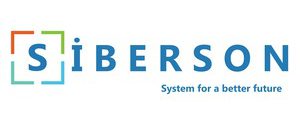In an increasingly digital world where data breaches and cyber threats loom large, safeguarding sensitive information has become paramount for organizations across industries. Amidst this backdrop, data classification solutions have emerged as indispensable tools in the cybersecurity arsenal. These solutions not only help identify and categorize data but also play a pivotal role in fortifying defenses, ensuring compliance, and mitigating risks. Let’s delve into the importance of data classification solutions in cybersecurity:
- Granular Visibility and Control
Data classification solutions provide organizations with granular visibility into their data landscape. By automatically scanning and categorizing data based on predefined policies and parameters, these solutions offer insights into the types of data being stored, their locations, and their sensitivity levels. This visibility enables organizations to exert finer control over their data, implement appropriate access controls, and safeguard critical information from unauthorized access or misuse.
- Effective Risk Management
Understanding the value and risk associated with different types of data is fundamental to effective risk management. Data classification solutions help organizations assess the significance of their data assets and prioritize security measures accordingly. By categorizing data based on its sensitivity, compliance requirements, and potential impact on the business, organizations can identify vulnerabilities, proactively address security gaps, and allocate resources judiciously to mitigate risks.
- Regulatory Compliance
In an era of stringent data protection regulations such as ISO 27001, GDPR, HIPAA, or CCPA, PCI/DSS compliance is non-negotiable. Data classification solutions play a crucial role in ensuring regulatory compliance by helping organizations classify and protect sensitive data in accordance with applicable laws and regulations. By automatically applying classification tags and encryption to sensitive data, these solutions streamline compliance efforts, reduce the risk of non-compliance penalties, and enhance trust among customers and stakeholders.

- Data Loss Prevention (DLP)
Data breaches and leakage incidents can have devastating consequences for organizations, ranging from financial losses to reputational damage. Data classification solutions bolster data loss prevention strategies by identifying and protecting sensitive data wherever it resides—whether on-premises, in the cloud, or in transit. By enforcing policies that govern data access, sharing, and movement, these solutions help prevent data exfiltration, unauthorized disclosure, and inadvertent leaks, thereby safeguarding valuable intellectual property and confidential information.
- Streamlined Incident Response
In the event of a security incident or breach, swift and effective incident response is crucial to minimizing the impact and restoring normal operations. Data classification solutions facilitate streamlined incident response by enabling organizations to prioritize their response efforts based on the criticality of the affected data. By quickly identifying compromised or at-risk data assets, organizations can initiate targeted remediation actions, contain the breach, and mitigate potential damage before it escalates.
- Enhanced Data Governance
Data classification solutions form the cornerstone of robust data governance frameworks. By establishing clear policies and procedures for classifying, managing, and protecting data, these solutions promote accountability, transparency, and consistency across the organization. This not only fosters a culture of data stewardship but also ensures that data is handled responsibly throughout its lifecycle, from creation to disposal.
In conclusion, data classification solutions are indispensable components of modern cybersecurity strategies. By providing granular visibility, facilitating effective risk management, ensuring regulatory compliance, bolstering data loss prevention efforts, streamlining incident response, and enhancing data governance, these solutions help organizations safeguard their most valuable assets in an increasingly complex and hostile digital landscape. As the volume and complexity of data continue to grow, investing in robust data classification solutions is not just a prudent choice—it’s a strategic imperative for organizations committed to protecting their data and preserving their reputation.
